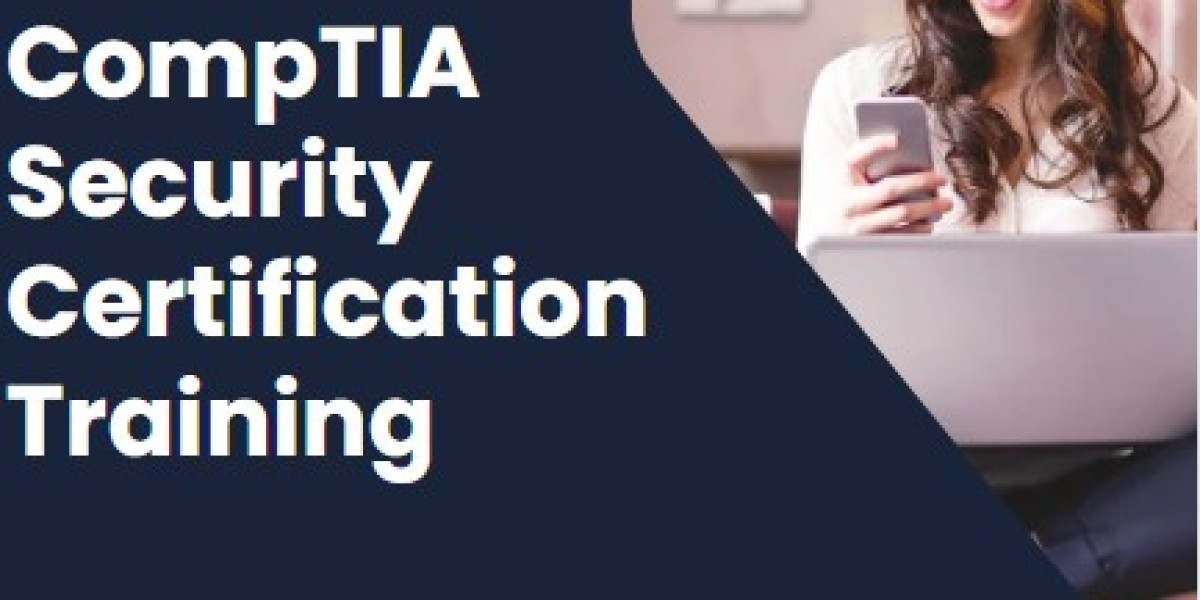The CompTIA Security+ certification is a foundational credential for those interested in pursuing a career in information security and cybersecurity. Designed to validate essential skills and knowledge, this certification provides professionals with a solid grounding in securing information, systems, and networks. In today’s digital world, security threats and vulnerabilities are increasingly prevalent, making Security+ certification valuable not only for cybersecurity specialists but also for IT generalists, network administrators, and anyone responsible for safeguarding data and information. This article covers the essential components of CompTIA Security+, the skills it validates, and the benefits it offers in the IT industry.
What is CompTIA Security+?
CompTIA Security+ is a globally recognized certification that validates baseline skills in cybersecurity. It is aimed at IT professionals who want to build a foundation in cybersecurity or add security skills to their existing IT knowledge. CompTIA, a leading provider of IT certifications, designed Security+ to cover a range of topics essential for protecting networks, identifying vulnerabilities, and understanding the security principles that underlie modern IT infrastructures.
The Security+ exam (SY0-601) is comprehensive, covering a variety of topics to prepare professionals to work in diverse roles. These roles can range from security administrator to systems analyst to network engineer. The exam tests candidates’ knowledge of core security concepts and their ability to apply these principles in real-world situations. To pass, candidates need a solid understanding of basic security protocols, network security, cryptography, identity management, and more.
Key Areas Covered in CompTIA Security+
The CompTIA Security+ Training in Dallas is organized into six main domains:
Threats, Attacks, and Vulnerabilities: This domain focuses on understanding various types of security threats, vulnerabilities, and attacks that can compromise information systems. Candidates must know how to identify different types of malware, phishing, ransomware, and other forms of attacks, and understand how these attacks exploit system weaknesses. They must also be familiar with emerging threats and the techniques used by attackers.
Architecture and Design: In this domain, candidates learn about the principles of secure network and systems design. They need to understand fundamental design concepts, such as network segmentation, secure software development practices, and disaster recovery strategies. This domain also emphasizes cloud security, application security, and enterprise architecture. Security+ requires candidates to know how to build and secure systems with considerations for both current and potential threats.
Implementation: This domain focuses on implementing security solutions, such as configuring and deploying network devices, software, and protocols. Professionals learn to install and manage security tools like firewalls, VPNs, and intrusion detection systems. Additionally, they need to understand encryption protocols and how to implement secure connections. This section is hands-on, as it tests the ability to apply knowledge to secure a network actively.
Operations and Incident Response: This area covers day-to-day security management, including monitoring, logging, and responding to security incidents. Candidates learn how to recognize indicators of compromise, perform root cause analysis, and utilize incident response frameworks effectively. It also emphasizes threat detection tools, such as SIEM (Security Information and Event Management) systems, and the methods for managing digital forensics and vulnerability scanning.
Governance, Risk, and Compliance: Governance, Risk, and Compliance (GRC) is an essential part of modern security practices. This domain includes understanding policies, legal regulations, and risk management processes. Candidates learn to apply best practices for maintaining compliance with laws and regulations like GDPR, HIPAA, and PCI-DSS, as well as to develop and implement security policies, conduct risk assessments, and apply security frameworks to ensure adherence to organizational standards.
Identity and Access Management (IAM): IAM covers methods for managing user identities and controlling access to information systems. Candidates must understand authentication methods, such as biometrics, multi-factor authentication (MFA), and access controls, like role-based access control (RBAC). This domain is increasingly relevant as organizations move to cloud-based systems, where identity management is a central security concern.
Skills and Knowledge Validated by Security+
The CompTIA Security+ certification validates a wide range of skills, making it ideal for professionals in many IT roles. Here are some key competencies:
- Identifying Threats and Vulnerabilities: Candidates learn to analyze and identify potential threats, recognize vulnerabilities in a system, and prioritize risks.
- Implementing Security Controls: Security+ certified professionals know how to apply essential security controls, such as firewalls, anti-virus software, and encryption methods, to secure networked environments.
- Securing Devices and Network Infrastructure: Security+ teaches professionals how to secure both physical devices and virtual infrastructure. This includes configuring secure networks, protecting devices from unauthorized access, and ensuring the security of connections.
- Incident Response and Forensics: This certification emphasizes the importance of having an incident response plan and the basics of digital forensics. Certified professionals can identify signs of an incident and manage response efforts effectively.
- Risk Management and Compliance: Security+ prepares candidates to approach cybersecurity through a risk management perspective, understanding the importance of compliance with security standards and regulations.
Benefits of CompTIA Security+
CompTIA Security+ is considered an entry-level certification, yet it opens doors to a wide range of cybersecurity roles. Here are some of the key benefits:
Industry Recognition: CompTIA Security+ is one of the most widely recognized cybersecurity certifications globally. It is trusted by employers and government organizations as a standard for entry-level security professionals. The U.S. Department of Defense, for example, accepts Security+ for several security roles.
Job Versatility: Security+ serves as a foundation for various roles in IT and security, including systems administrator, security consultant, network engineer, and IT auditor. By demonstrating knowledge of foundational security concepts, candidates have the flexibility to apply for multiple IT positions.
Prerequisite for Advanced Certifications: Security+ is often considered a stepping stone for more advanced cybersecurity certifications, such as Certified Information Systems Security Professional (CISSP) and Certified Information Security Manager (CISM). For IT professionals interested in furthering their cybersecurity careers, Security+ is an excellent starting point.
Increased Earning Potential: IT professionals with Security+ certification often earn more than their non-certified counterparts. According to industry surveys, cybersecurity professionals tend to earn competitive salaries, and certification increases an individual's value and marketability in a highly competitive field.
Hands-on Skills: The Security+ exam includes performance-based questions that test candidates’ practical skills in real-world scenarios. This emphasis on hands-on skills provides candidates with confidence in their ability to tackle actual cybersecurity challenges.
Broad Coverage of Cybersecurity Basics: Security+ offers broad yet thorough coverage of essential cybersecurity concepts. By learning the fundamentals of network security, risk management, and threat detection, professionals can develop a holistic understanding of security that prepares them for complex cybersecurity tasks.
Conclusion
CompTIA Security+ is an excellent certification for IT professionals who want to establish a solid foundation in cybersecurity. Covering critical domains such as threat management, incident response, and risk management, Security+ provides a well-rounded introduction to essential security practices. For individuals pursuing roles in IT or cybersecurity, CompTIA Security+ is a valuable credential that offers industry recognition, hands-on skills, and increased job opportunities. With its broad applicability and emphasis on real-world skills, Security+ is a stepping stone for those aiming to specialize in cybersecurity and gain practical knowledge that applies across industries.



